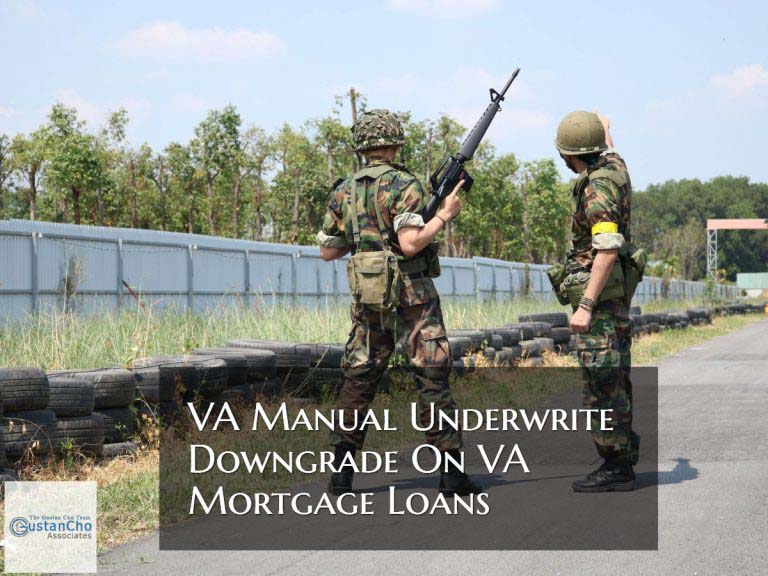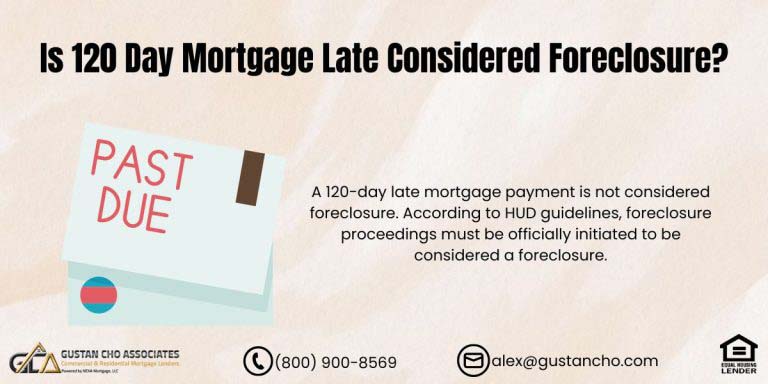This guide covers the minimum lending requirements with getting approved for a mortgage after bankruptcy. Bankruptcy is a federal law that enables a person who is overwhelmed in debts to seek relief from the courts. Consumers can either discharge all of their debts or structure a repayment plan to pay their creditors. John Strange, a senior mortgage loan originator at Gustan Cho Associates says the following about getting a mortgage after bankruptcy:
Bankruptcy gives those who are in debt and cannot meet their payment obligations a fresh start in life. People need to realize that filing bankruptcy is not the end of the world. Actually, it is the opposite.
Consumers filing bankruptcy is getting a second chance in rebuilding, establishing, and developing their finances and building their credit profile. People who file bankruptcy can get qualified for government-backed and conventional loans after meeting the mandatory waiting period requirements. A bankruptcy will plummet credit scores by 200 or more points initially. However, the good news is that the drop is a temporary drop and credit scores will recover over time.
Re-Establishing Credit to Qualify for a Mortgage After Bankruptcy
The longer bankruptcy discharge date is, the less of an impact the bankruptcy will have on credit scores. Immediately after the discharge date of bankruptcy people should start re-establishing credit by getting a few secured credit cards. John Strange, a senior mortgage loan originator at Gustan Cho Associates says the following about re-establishing credit after bankruptcy so consumers can get approved for a mortgage loan:
Secured credit cards are the ultimate weapon and healer in rebuilding credit after filing bankruptcy. Getting five $500 credit secured credit cards is the easiest and fastest way of rebuilding credit. Use them wisely.
As soon as your bankruptcy has been discharged, you need to start rebuilding your credit and boost your credit scores. You do not have to be a rocket scientist or a brain surgeon with a 200 IQ to rebuild credit and get your sub-500 credit scores to 680 or higher in less than 12 months. The key is to mask your derogatory credit tradelines by adding new credit that report to all three credit bureaus. In the following paragraphs, we will cover how to qualify and get approved for a mortgage after bankruptcy.
Mortgage After Bankruptcy Is Possible—Even Sooner Than You Think
Learn the waiting periods, loan options, and how to boost your approval odds.
How to Rebuild and Establish Credit to Get Approved For a Mortgage After Bankruptcy
If you add positive credit and religiously pay the minimum payment on-time, your credit scores will surpass the 700 mark a year after after your bankruptcy discharged date. Open up a credit rebuilder account. Credit rebuilder accounts are offered by many banks and credit unions. The way credit rebuilder works is you open up a savings account with the financial institution with an amount you feel paying every month. Dale Elenteny, a senior mortgage loan originator at Gustan Cho Associates explains how credit rebuilder accounts work: Let’s take an example on how a credit rebuilder account works:
For example, ihere is how a credit rebuilder account works. Account holders can make a monthly deposit of $25, $50, or $100 or more into their credit rebuilder savings account. The financial institution will then report your monthly deposit on all three credit bureaus as an installment loan.
After about four months of making the monthly payment, into their credit builder savings account, the financial institution will issue you a secured credit card where the credit limit will match the amount you have saved in your credit rebuilder account. As time pass the financial institution will notice you. The credit manager or credit committee establishes trust, see that you are financially responsible, and sees that you have been making timely payments. Every few months the credit committee will review and evaluate each credit account holder’s financial health. If the review your success of rebuilding and re-establishing your credit, the financial institution may increase your credit limit on your credit card without asking for additional deposit.
The Benefits of Filing Bankruptcy and How Can You Get Approved For a Mortgage After Bankruptcy
There are many consumers who are struggling financialy and often times skip meals, and cannot pay their bills due the abundance of debt they have. These folks think that filing bankruptcy is the end of the world. They often believe they can never buy a house because they do not qualify for a mortgage after bankruptcy. Dustin Dumestre, an associate contributing editor at GCA Forums says the following about why consumers file bankruptcy:
The question that needs to ask is whether to should file bankruptcy and why. Go over the benefits of filing bankruptcy and the negatives.
Bankruptcy is a federal consumer protection law offered by the federal government to give consumers relief from the debts they have where the bankruptcy trustee will restructured their aggregate minimum payment based on their income to creditors or discharge the debts altogether for those who have little to no assets or assets that are exempt by the United States Bankruptcy Court. In this article, we will cover and discuss applying for a home mortgage after bankruptcy.
What Type of Impact Does a Bankruptcy Have on Getting Approved for a Mortgage After Bankruptcy
Filing bankruptcy and getting it discharged by the courts gives consumers total relief from the stress they have been induring. Is bankruptcy for me? Why are you considering bankruptcy? What do you know about bankruptcy? How Filing Bankruptcy Affects Applying For Mortgage?
- Bankruptcy attorneys give free consultations
- I strongly advise on speaking not to just one bankruptcy attorney, but several
- Do not rush into signing a contractual agreement with the first bankruptcy attorney
- Need to feel comfortable with the bankruptcy attorney
- Speak to family and friends who have gone through prior bankruptcies
- Consult with a credit counselor about the pros and cons of filing bankruptcy and
Consult with a mortgage loan officer at Gustan Cho Associates to see what steps you need to take to qualify and get approved for a mortgage after bankruptcy.
Can I Get Qualified and Approved for a Mortgage After Bankruptcy?
I speak to dozens of borrowers a day. large A large portion of our prospects who are on the verge of filing bankruptcy does not need to file bankruptcy.
- A perfect example is a potential home buyer who came to me to eventually qualify for a mortgage loan
- She told me that she wanted to purchase a home but need to file bankruptcy
- I told her that I will run her credit
- When I got the results, I was surprised that her credit scores were over 700
- I saw no reason in her filing bankruptcy
- She did have a few collection accounts and several charged-off accounts
- But most of her delinquent accounts were over 5 years old
- The majority of her collections, charge offs, repossessions will not only expire the statute of limitations but will fall off her credit report in a year or two
- I asked her why she wanted to file bankruptcy
- She told me that she wanted to qualify for a home loan and could not pay back her older debts
- The thing she did not realize is that most of the debt collectors had stopped calling her
- Most of her debts are nearing or has passed the statute of limitations
- Borrowers do not have to pay outstanding collections and charge off accounts to qualify for FHA Loans
A bankruptcy would have been not needed in this particular case.
Don’t Let Bankruptcy Hold You Back From Homeownership
We’ve helped thousands qualify for a mortgage with a bankruptcy on record.
Is Bankruptcy For Me: Do I Have To File Bankruptcy?
In the event, if a debtor has a few debts and the debts are recent debts, the creditor will be more than willing to do a repayment plan which is affordable to the debtor and the debtor can avoid bankruptcy. Debts that are older than 2 years old, the chances of the creditor going after the debtor is not likely. I have seen people file bankruptcy for having debts as little as $5,000.
Mortgage After Bankruptcy: Type of Bankruptcy
There are two types of bankruptcies:
Mortgage After Bankruptcy: Chapter 7 Bankruptcy:
- Chapter 7 Bankruptcy is total liquidation and is geared towards folks with no income or little income
- Chapter 13 Bankruptcy is only for those folks who have income and want to protect their assets
Mortgage After Bankruptcy: Chapter 13 Bankruptcy:
-
- Chapter 13 is also known as a restructuring of debts
- A bankruptcy trustee is appointed to the petitioner where a percentage of the petitioner’s income is allocated towards paying the creditors over a course of 3 to 5 years
- After that period is over, the remaining debts are discharged
Lawsuits And Judgments: Wage Garnishments And Assets Seizure
Creditors can take consumers to court and get a judgment against them.
- Creditors can enforce the judgment against and can also garnish wages and seize bank and investment accounts
- Those who have pending lawsuits and judgments filing bankruptcy can discharge them
- Judgments are the worst derogatory items anyone can have on the credit report
- Judgment is good for at least 10 years in most states
- Judgments can be renewed for another 10 years for a total of 20 years depending on the state.
- Multiple judgments can affect the mortgage process.
Dangers and Impacts of Judgments When Qualifying For a Mortgage after Bankruptcy
If judgment creditor believes the debtor has assets and income, they will most likely aggressively pursue collection activities such as the following:
- Garnishing wages
- Freezing assets
- Liening real estate
I am not a bankruptcy attorney nor a bankruptcy expert so consumers need to contact a bankruptcy attorney to explore the bankruptcy law options if they have questions applying and getting approved for a mortgage after bankruptcy.
- By filing bankruptcy, all of judgments and lawsuits can get expunged
There are certain debts that cannot be discharged through a bankruptcy as the following:
- Government loans such as student loans
- Government fines
- Child support
- Income taxes
- Federal student loans
There are exempt assets when filing bankruptcy. Petitioners can still keep home, car, and other assets and still file bankruptcy.
What Guidelines and Rules Due I Need To Address Applying For a Mortgage After Bankruptcy
Borrowers do not have to file bankruptcy to qualify for home loans but has outstanding collections and charge off accounts, the outstanding balance on collections and charge-off accounts do not have to be paid to qualify for home loans. Written payment agreements and three months of payment seasoning are required for borrowers with outstanding judgments and tax liens.
Waiting Period Guidelines to Get Approved for a Mortgage After Bankruptcy
Borrowers who filed bankruptcy, there are mandatory waiting period requirements they need to meet:
- 2 year waiting period after the discharged date of Chapter 7 Bankruptcy to qualify for the following loan programs:
- FHA Loans
- VA Home Loans
- USDA Loans requires three years waiting period
- Borrowers can qualify for FHA and VA Loans one year into a Chapter 13 Bankruptcy Repayment Plan
- There is no waiting period after Chapter 13 Bankruptcy discharged date to qualify for VA and FHA Home Loans
- There is a four-year waiting period to qualify for Conventional Loans After Chapter 7 Bankruptcy
- There is a two-year waiting period to qualify for Conventional Loans After Chapter 13 Bankruptcy discharge date
- The waiting period is four years to qualify for Conventional Loans After Chapter 13 dismissal date
- There is a one-year waiting period to qualify for non-QM loans after Chapter 7 Bankruptcy
Gustan Cho Associates is a national lender with no mortgage lender overlays on government and conventional loans. Please contact us at 800-900-8569 or text us for a faster response. Or email us at gcho@gustancho.com.
This BLOG on Can I get qualified and approved for a mortgage after bankruptcy was updated on July 15, 2025.
Bounced Back From Bankruptcy? You Can Still Buy a Home
We specialize in helping borrowers get approved for mortgages after bankruptcy.









